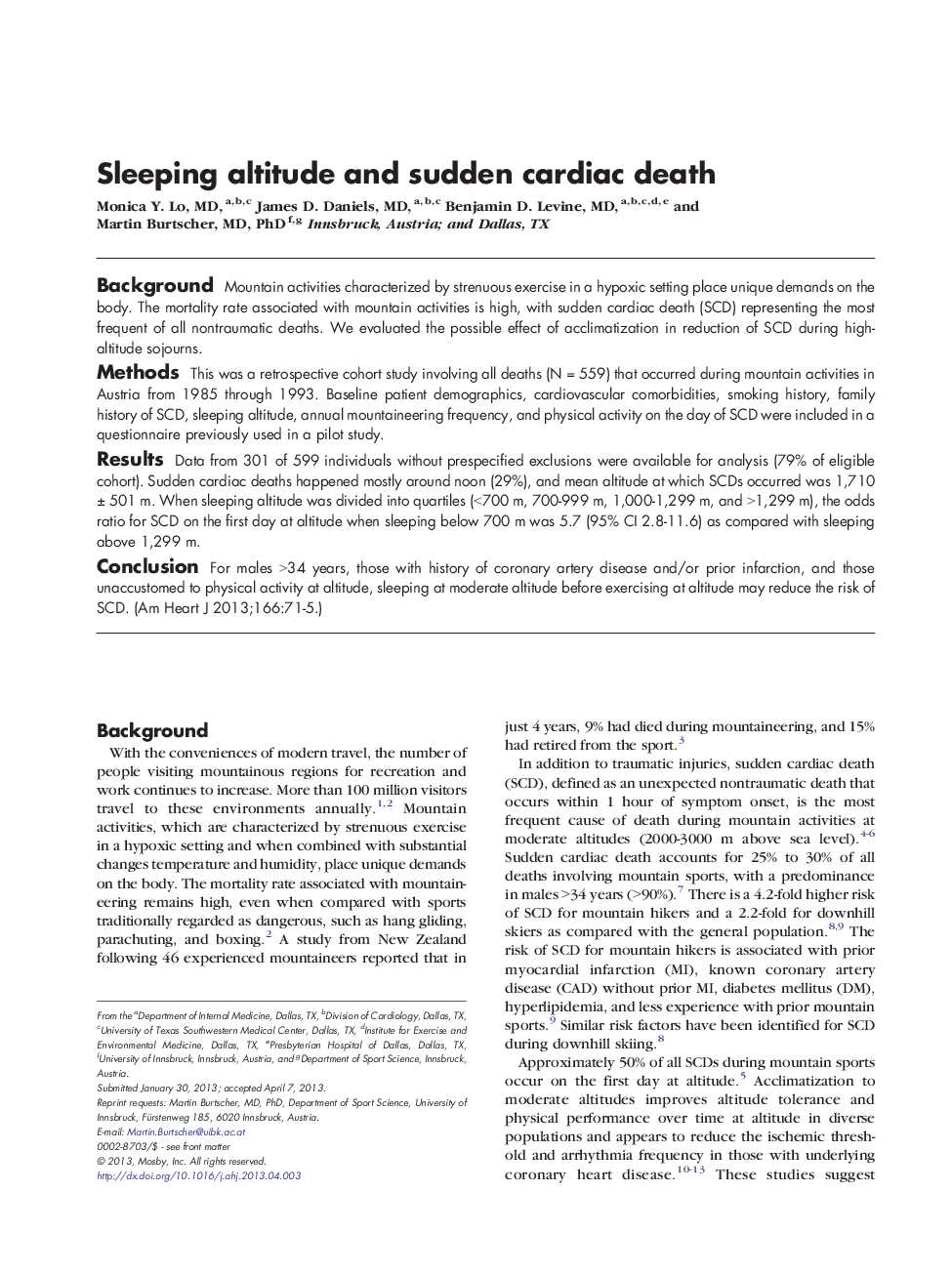| Article ID | Journal | Published Year | Pages | File Type |
|---|---|---|---|---|
| 2848822 | American Heart Journal | 2013 | 5 Pages |
BackgroundMountain activities characterized by strenuous exercise in a hypoxic setting place unique demands on the body. The mortality rate associated with mountain activities is high, with sudden cardiac death (SCD) representing the most frequent of all nontraumatic deaths. We evaluated the possible effect of acclimatization in reduction of SCD during high-altitude sojourns.MethodsThis was a retrospective cohort study involving all deaths (N = 559) that occurred during mountain activities in Austria from 1985 through 1993. Baseline patient demographics, cardiovascular comorbidities, smoking history, family history of SCD, sleeping altitude, annual mountaineering frequency, and physical activity on the day of SCD were included in a questionnaire previously used in a pilot study.ResultsData from 301 of 599 individuals without prespecified exclusions were available for analysis (79% of eligible cohort). Sudden cardiac deaths happened mostly around noon (29%), and mean altitude at which SCDs occurred was 1,710 ± 501 m. When sleeping altitude was divided into quartiles (<700 m, 700-999 m, 1,000-1,299 m, and >1,299 m), the odds ratio for SCD on the first day at altitude when sleeping below 700 m was 5.7 (95% CI 2.8-11.6) as compared with sleeping above 1,299 m.ConclusionFor males >34 years, those with history of coronary artery disease and/or prior infarction, and those unaccustomed to physical activity at altitude, sleeping at moderate altitude before exercising at altitude may reduce the risk of SCD.
